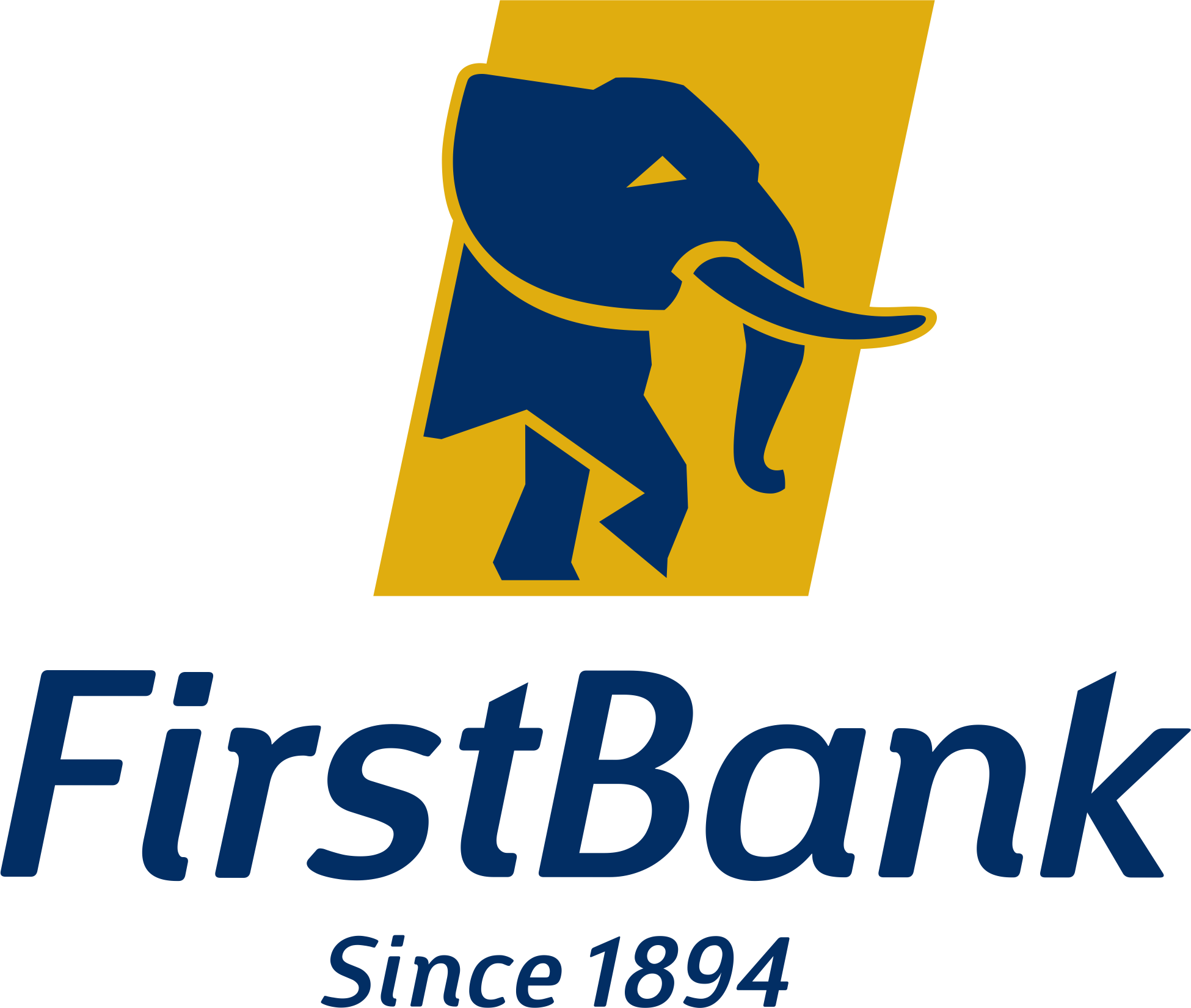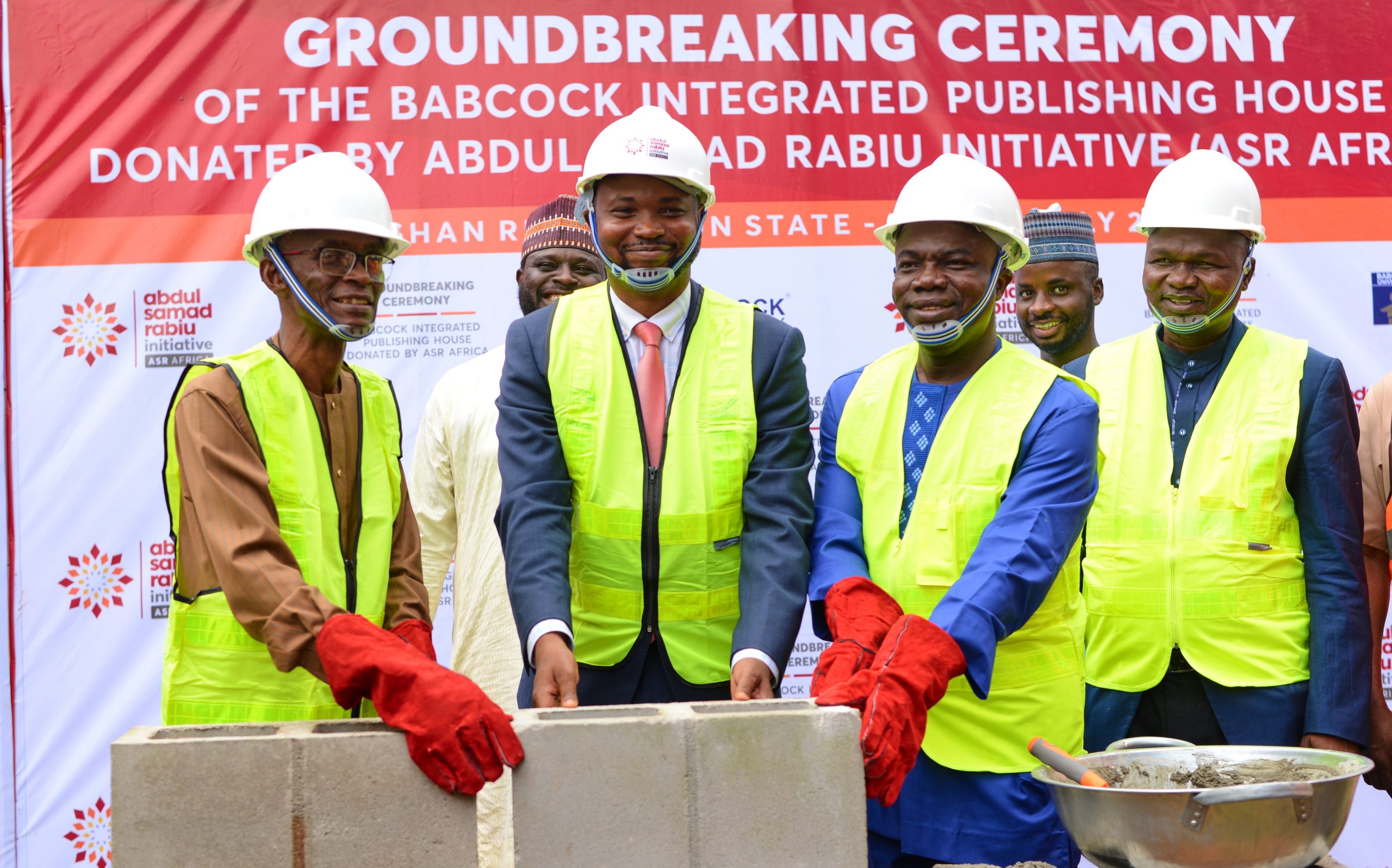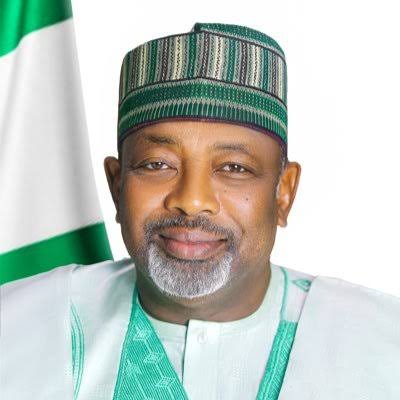Business
When a Bank Puts SMEs First
Published
4 years agoon

In keeping with the Nigerian spirit of being one’s brother’s keeper, equally unprecedented efforts by individuals, groups and corporate organisations to try to provide assistance for people and businesses affected by the crises of the past week, have followed. Individuals and groups have announced donations of cash and materials, set up helplines to offer psychological counselling and support, and started online crowd-funding efforts in support of victims. Among corporate organisations, we have seen banks take a leading role. Some banks, such as Access Bank and Stanbic IBTC, have announced funds or desks they have set up to receive requests from, and process assistance for, affected individuals and businesses. One of these banks’ efforts include pledged interest-free loans and grants that affected businesses and individuals can access.
Last week will go down as one of the most challenging weeks, if not the most challenging, Nigeria has faced in 2020. What started out weeks before as very well-organised peaceful protests by young Nigerians campaigning to #EndSARS, was supplanted by hoodlums engaging in wanton looting, arson and destruction of public and private properties across many states at an unprecedented scale. By the end of the week, many lives had been lost, many properties and businesses completely destroyed and Nigeria has been left reeling from a shock that dwarfs any the country felt even at the peak of the COVID-19 outbreak.
In keeping with the Nigerian spirit of being one’s brother’s keeper, equally unprecedented efforts by individuals, groups and corporate organisations to try to provide assistance for people and businesses affected by the crises of the past week, have followed. Individuals and groups have announced donations of cash and materials, set up helplines to offer psychological counselling and support, and started online crowd-funding efforts in support of victims. Among corporate organisations, we have seen banks take a leading role. Some banks, such as Access Bank and Stanbic IBTC, have announced funds or desks they have set up to receive requests from, and process assistance for, affected individuals and businesses. One of these banks’ efforts include pledged interest-free loans and grants that affected businesses and individuals can access.
Another bank has seen thousands of requests for assistance pour in through the online channel it set up for the purpose. The requests have flowed in, not only because of the victims’ desperation for help, but also because of the humane approach to banking that this institution adopts. Always putting the customer at the heart of its business, FirstBank has been showing empathy with all those who have experienced one loss or the other as a result of the crises. Since last week, the bank has been seeking every opportunity to identify with people who are currently grieving and hurting.
Although the largest and most prominent member of Nigeria’s leading financial powerhouse, the FBNHoldings Group that is a one-stop shop for financial services ranging from commercial and investment banking to financial advisory, insurance brokerage and pensions custodianship, FirstBank is neither immune nor removed from the challenges people face. It is a human institution with thousands of humans working as employees to provide bespoke banking products and services to millions of other humans whose pulse the bank feels through its employees. Being part of a group with expertise across the broad spectrum of financial services, makes FirstBank the banking partner with the broadest shoulders to assist SMEs buffeted by the wave of violence witnessed across the nation last week.
Given the interconnectivity between Nigeria and FirstBank’s history, it is no surprise that a tumultuous week in Nigeria is giving way to one with stories of hope and optimism by Nigerians badly affected by the crises of the past week, who are looking to FirstBank for assistance. These Nigerians have been encouraged by the strides FirstBank has made over the years in the SME space as the bank of first choice for small businesses. Built around seven strategic pillars – of connect to infrastructure, connect to talent, capacity building, policy and regulation, connect to resources, connect to market as well as connect to finance – considered essential for the sustainability and growth of SMEs and intended to promote a healthy business interaction and adaptability of the SMEs with their immediate environment, FirstBank’s involvement with SMEs, through SMEConnect (the bank’s branded bouquet of empowerment initiatives, products and services tailor-made for SMEs), has been one that has sought to facilitate their growth into future economic powerhouses playing ever-increasing roles in Nigeria’s economic development.
Since its maiden SME National Conference in 2014, FirstBank has annually engaged small businesses and SME owners in series of empowerment seminars and workshops designed to improve their business capacity. Only this year, FirstBank held its inaugural SME Business Clinic in Lagos, Port Harcourt and Abuja with many SMEs in attendance. The SME Business Clinic featured Abayomi Adewumi, CEO of the Global Leadership Institute and an industry expert and business growth consultant with vast experience working with SMEs. He engaged participants on the FirstBank SME diagnostic tool designed for SMEs to check the health of their business, better understand it and drive profitability.
In 2019, FirstBank organised a weeklong SME event which had owners of SMEs in different sectors mentored across multiple states in the country. It was the first of its kind in the industry. Organised in partnership with SME Traction, a leading business coaching platform, it was aimed at empowering SMEs to make informed choices about their businesses, thereby facilitating growth and bolstering their contribution to the development of the economy. At the event, FirstBank’s Deputy Managing Director, Gbenga Shobo, underlined the importance the bank attaches to SMEs. He said: “At FirstBank, we recognise the impact SMEs have in promoting growth of the economy and are excited at the opportunity to continue to enable them prosper by strategically contributing to the sustainability of their business. We remain the trusted financial partner of SMEs and reiterate our resolve to be known as the brand that enables their success; much the same way that we have for over 125 years enabled Nigerians and the economy at large.”
This same point was elaborated at another FirstBank SME event, “Food Souk”, convened in 2019 in partnership with Eventful Limited, an events management firm, where the bank restated its commitment to the Federal Government’s diversification drive, promising to continue to support the agricultural value chain from production to consumption to create opportunities for SMEs in the food sector so they could in turn create job opportunities. The bank also extended its hand of partnership to all small businesses involved in organising different trade fairs and exhibitions. A food vendor at the event, Ms Ijeoma Ebeneme, the Chief Executive Officer, JEM N Iris, commended FirstBank for putting the event together. Ebeneme said she was at the food fair to make profit, meet new clients as well as create the needed publicity for her brand. It is for people like Ebeneme that FirstBank maintains an SME website (https://smeconnect.firstbanknigeria.com) with rich resources to help SMEs build capacity and improve how they run their business. On the website is a blog featuring business articles and tips, SME business toolkit, SME products, Microsoft 365 Business Basic and a whole lot more.
In support of owners of SMEs operating in the education sector, FirstBank, in partnership with the Lagos State Employment Trust Fund (LSETF), set up a matching fund scheme of ₦5 billion LSETF-FirstEdu Loan. Officially launched in September by Governor Babajide Sanwo-Olu of Lagos State and Dr Adesola Adeduntan, Managing Director/CEO of FirstBank, the scheme aims to cushion the impact of Covid-19 pandemic on low-cost private schools by ensuring lending at an attractive interest rate. Speaking at the launch, Dr Adeduntan said: “At FirstBank we recognise the indelible role played by the education sector in the growth of any economy and this underscores our partnership with Lagos State Government for continuous development of the education services in Lagos State and the nation as a whole. The commitment by the Lagos State Government – including this partnership – to enable schools is quite commendable as this will mitigate the challenges caused by the lockdown on the education sector following the COVID-19 pandemic.”
It is for efforts like all those highlighted above and many more that the 2019 edition of KPMG’s Annual Banking Industry customer Satisfaction Survey named FirstBank as the biggest mover in the SME space. The 2014 edition of the Survey had named the bank as the most popular bank among MSMEs for both deposit transactions and credit/loan facilities with 26 per cent of the SMEs surveyed identifying the bank as one where they had an ongoing loan facility or had obtained one in the recent past. It is also for the same reason that the unfortunate events of the last week have reignited the bond between Nigerians and FirstBank, a partner that they can bank on in times of need. The bank’s track record leaves no one in any doubt of its unwavering commitment to continue to weather all storms with Nigeria and Nigerian SMEs with whom it shares a common destiny.
Culled from BusinessDay
Related
Sahara weekly online is published by First Sahara weekly international. contact [email protected]

Business
Lion Oshiyemi Pledges redefinition, reposition as he emerges 20th President of OGUNCCIMA
Published
2 hours agoon
July 26, 2024
Lion Oshiyemi Pledges redefinition, reposition as he emerges 20th President of OGUNCCIMA
Lion Niyi Oshiyemi has been invested as the 20th President of the Ogun State Chambers of Commerce, Industry, Mines and Agriculture (OGUNCCIMA) at the Chamber’s 40th Annual General Meeting.
The investiture ceremony of the new OGUNCCIMA leadership was held on Thursday at Tunwase Hall in Ijebu Ode, Ogun State with top Chamber movement members in attendance.
The President In his acceptance speech, expressed gratitude to the immediate past President, Engr. Mike Akingbade, and the Chamber for entrusting him with the esteemed position.
He pledged to leverage available opportunities to redefine and reposition the Chamber, creating platforms to influence legislation and improve the business environment.
“I am honored to lead this prestigious organization and I promise to harness all available opportunities to redefine and reposition the chamber of commerce movement in the state”.
“I will continue to create platforms to influence legislation and other measures affecting trade, improve the business environment, and build a Nigerian economy of thriving business opportunities through networking”.
“I wish to enjoin you all who represent businesses, if you have not joined the OGUNCCIMA, please come and lend your voice to others. The bigger the network, the louder the voice and the stronger the influence”.
“Our advocacy seeks to ensure that the business community can have its voice heard on issues that are important to it”.
“I’d like to introduce to you my Presidency’s flagship project “OGUNCCIMA Secretariat”: The project is massive and requires a lot, I therefore seek your support and look forward to partnering with all stakeholders – the state government and it’s agencies (Federal and State Ministries, Departments and Agencies), development partners, the diplomatic communities, the media, and other stakeholders”, he said.
Oshiyemi also praised the founding fathers of the Chamber, saying, “I laud the vision of our founding fathers, who have laid a solid foundation for us to build upon. I am committed to taking OGUNCCIMA to greater heights and making it a beacon of hope for businesses in Ogun State.”
The Ogun State Hon. Commissioner for Industry, Trade and Investment, Hon. Adebola Sofela Emmanuel, in his keynote address said by the Permanent Secretary, Ministry of Trade and Investment, Dr. Olu Ola Aikulola, said over the years that the Ogun State Chambers of Commerce, Industry, Mines and Agriculture (OGUNCCIMA), has not only remained a beacon of entrepreneurial excellence, but also partners in driving economic growth, fostering trade, and promoting investment opportunities in the state.
He said: “I would like to extend my heartfelt congratulations to OGUNCCIMA on this historical movement. Forty years of dedicated service to the industrial, trade, and agricultural sectors of Ogun State is no small feat”.
“Over the years, the Ogun State Chambers of Commerce, Industry, Mines and Agriculture (OGUNCCIMA) has not only been a beacon of entrepreneurial excellence but also a pivotal partner in driving industrial growth, fostering trade, and promoting investment opportunities”.
“Today, as we elect new officers to continue this legacy of excellence, I urge all members to approach this process with a spirit of unity, fairness, and foresight. The future of our chambers and the economic well-being of our state depend on the collective wisdom and strategic vision of our leaders”.
“For us, as a government, we will continue to put in place Institutional mechanisms that will guide our various developmental programmes in all sector of the economy”, he added.
In his remarks, NACCIMA President, Dele Kelvin Oye, represented by the Director – General, Olusola Obadimu, urged the new leadership of OGUNCCIMA to reflect on the the Chambers achievements and chart the course for the future.
“Today, as we gather for the 40th Annual General Meeting and Investiture of New Executives, I want to charge the new leadership to be dedicated and build on the achievements of the past administrations”.
“On behalf of NACCIMA, I congratulate the new officers and may our shared efforts continue to bear fruit, and may new officers lead us for greater heights of success and prosperity”, he concluded.
Related
Business
ASR AFRICA FLAGS OFF CONSTRUCTION OF A N280 MILLION INTEGRATED PUBLISHING HOUSE FOR BABCOCK UNIVERSITY, ILISHAN-REMO, OGUN STATE, NIGERIA
Published
6 hours agoon
July 26, 2024
ASR AFRICA FLAGS OFF CONSTRUCTION OF A N280 MILLION INTEGRATED PUBLISHING HOUSE FOR BABCOCK UNIVERSITY, ILISHAN-REMO, OGUN STATE, NIGERIA
Sahara Weekly Reports That The Abdul Samad Rabiu Africa Initiative (ASR Africa), the philanthropic initiative of the Chairman of BUA Group, Abdul Samad Rabiu (CFR, CON), has flagged off the construction of a N280 million Abdul Samad Rabiu Integrated Publishing House for Babcock University, Ilishan-Remo, Ogun State. This project will enhance the capacity of the University from basic press status to a modern, integrated publishing house to encompass publishing, print production, and other related diversified services. The one-storey building facility will serve as a laboratory and studio for training students of communications, media studies, and allied disciplines as well as other disciplines.
At the groundbreaking event, the Vice Chancellor of the University, Prof. Ademola S. Tayo, expressed satisfaction at the nomination by ASR Africa, under its Tertiary Education Grant Scheme. He added that the choice of the project was a response to the vision to take the Mass Communications Department of the University to a whole new level. According to him, the university’s vision is to produce young men and women capable of critical thinking, and problem-solvers capable of proffering innovative solutions to problems of everyday life, be it social, political, and cultural.
In his response, Dr. Ubon Udoh, the Managing Director of ASR Africa, expressed his delight at the University’s choice of establishing an Integrated Publishing House. He added that when information is appropriately applied, human society is empowered to liberate itself from limitations and attain its full potential. Dr Udoh reiterated the commitment of the Chairman of ASR Africa, Abdul Samad Rabiu to supporting quality education within the tertiary education system in Nigeria and urged the institution to focus on the sustainability of this noble project. He also reiterated the importance of cooperation and collaboration between the university and the contractor for the timely delivery of the publishing house.
About ASR Africa
ASR Africa is the brainchild of African Industrialist, Philanthropist, and Chairman of BUA Group, Abdul Samad Rabiu, the Abdul Samad Rabiu Africa Initiative (ASR Africa) was established in 2021 to provide sustainable, impact-based, homegrown solutions to developmental issues affecting Health, Education and Social Development within Africa.
Related
Business
CBOs Laud Minister of Agric Kyari Over Transparent Distribution Of Fertilisers, Foodstuff Across Nigeria
Published
10 hours agoon
July 26, 2024
CBOs Laud Minister of Agric Kyari Over Transparent Distribution Of Fertilisers, Foodstuff Across Nigeria
A network of community-based organizations (CBOs) in Nigeria, the Coalition of Ethnic Nationalities’ Rights Agenda, the South East Revival Coalition, and Progressive Yoruba Youth for Change have applauded the Minister of Agriculture and Food Security, Sen. Abubakar Kyari, for his efforts and transparency in the distribution of food, fertilisers and other farming inputs across the country.
The CBOs gave the commendation at a joint press conference held in Abuja on Thursday. The conference was addressed by Mallam Yusuf Khalifa, National Coordinator of the Coalition of Ethnic Nationalities’ Rights Agenda; Dr. Eberechi Okonkwo, Convener of the South East Revival Coalition; and Comrade Olajide Olumide Adeniyi, Executive Secretary of Progressive Yoruba Youth for Change.
“The Minister of Agriculture and Food Security, Senator Abubakar Kyari has established a reputation for integrity and transparency in the ministry. The transparency in the distribution of food, fertilisers and other farming inputs across the country under Kyari’s stewardship is unprecedented,” the CBOs said.
“Senator Kyari has demonstrated a practical commitment to enhancing food security and nutrition in the country by prioritising equity and fairness in the distribution of food, fertilisers and other farming inputs.
“We salute his sense of nationalism. His fair distribution of farming inputs has laid a strong foundation for a prosperous and sustainable agricultural sector. Kyari’s tireless efforts to revolutionise the agricultural sector as well as to ensure that Nigeria becomes self-sufficient in food production is beyond patriotic.
“His exceptional leadership has made the the issue of marginalization in the distribution of food, fertilisers and other farming inputs, a thing of the past in the country. The effective utilization of resources by the Minister has proven not only instrumental to modernising the agricultural space but also to peace and harmony on farms across the nation.
“We applaud Senator Kyari for championing the emancipation of Nigerian farmers, particularly those in rural communities who previously lacked access to government-distributed food, fertilizers, and other farming supplies. Kyari’s unwavering support for women and youth in agriculture has resulted in increased distribution of food, fertilizers, and other farming inputs to more female and young farmers this year than ever before.
“This network of community-based organisations urges the beneficiaries, especially those in the rural communities, to use the supplies judiciously for the purpose they were distributed for. The government has prioritised the agricultural sector as a key driver of Nigeria’s economic growth, hence, its unwavering support of the sector. Farmers must corroborate the government’s efforts by taking advantage of its policies, programmes and interventions.
“We urge the Minister to sustain his visionary leadership, effective resource utilization, and strategic initiatives which have yielded significant progress in the agricultural sector.
“We remain committed to working alongside the Minister to strengthen the agricultural sector and achieve a prosperous, food-secure, and environmentally sustainable Nigeria.”
Related
Cover Of The Week

- Economic Community of West African States (ECOWAS) Centre for Renewable Energy and Energy Efficiency (ECREEE) Inaugurates Solarization of Three Hospitals in Ghana July 26, 2024
- Tunisia: Amnesty International’s Secretary General denounces rollback of human rights upon concluding four-day visit July 26, 2024
- Merck Foundation Chairman & Chief Executive Officer (CEO) meet Botswana President & First Lady to launch long term partnership to build healthcare capacity, stop infertility Stigma & Gender-based Violence (GBV) and Support girl education in Botswana July 26, 2024
- Uganda: Children’s Parliament calls for end to hunger, malnutrition July 26, 2024
- Uganda: Aleper eulogised for uniting Karamoja July 26, 2024
- Call for the 2024-2025 Fellowship for Young African Professionals July 26, 2024
- Uganda: Northern Corridor Integration Projects Drive Regional Progress July 26, 2024
- South Sudan eyes Water Convention accession for stronger water governance and development opportunities July 26, 2024
- Strengthening Fisheries Cooperation: Indonesian Ambassador Meets with Angolan Minister of Fisheries July 26, 2024
- Democratic Republic of the Congo: European Union (EU) lists nine individuals and one entity July 26, 2024
- Economic Community of West African States (ECOWAS) Centre for Renewable Energy and Energy Efficiency (ECREEE) Inaugurates Solarization of Three Hospitals in Ghana July 26, 2024
- Tunisia: Amnesty International’s Secretary General denounces rollback of human rights upon concluding four-day visit July 26, 2024
- Merck Foundation Chairman & Chief Executive Officer (CEO) meet Botswana President & First Lady to launch long term partnership to build healthcare capacity, stop infertility Stigma & Gender-based Violence (GBV) and Support girl education in Botswana July 26, 2024
- Uganda: Children’s Parliament calls for end to hunger, malnutrition July 26, 2024
- Uganda: Aleper eulogised for uniting Karamoja July 26, 2024
- Call for the 2024-2025 Fellowship for Young African Professionals July 26, 2024
- Uganda: Northern Corridor Integration Projects Drive Regional Progress July 26, 2024
Trending
-

 Business6 months ago
Business6 months agoFintech Guru, Jesam Micheal Opens Biggest Apple Store In Africa, Reveals Why
-

 Business6 months ago
Business6 months agoFintech Guru, Jesam Micheal Opens Biggest Apple Store In Lagos On Saturday (Video)
-

 celebrity radar - gossips6 months ago
celebrity radar - gossips6 months agoTop Lagos Monarch Receives Jesam Micheal, Urges Him on First AAS Solar Powered Estate Project
-

 celebrity radar - gossips6 months ago
celebrity radar - gossips6 months agoMFM WINS AGAIN AS US COURT SLAMS BLOGGER, FUNKE ASHEKUN WITH 50,000 DOLLARS FOR SLANDERING CHURCH AND DR OLUKOYA








